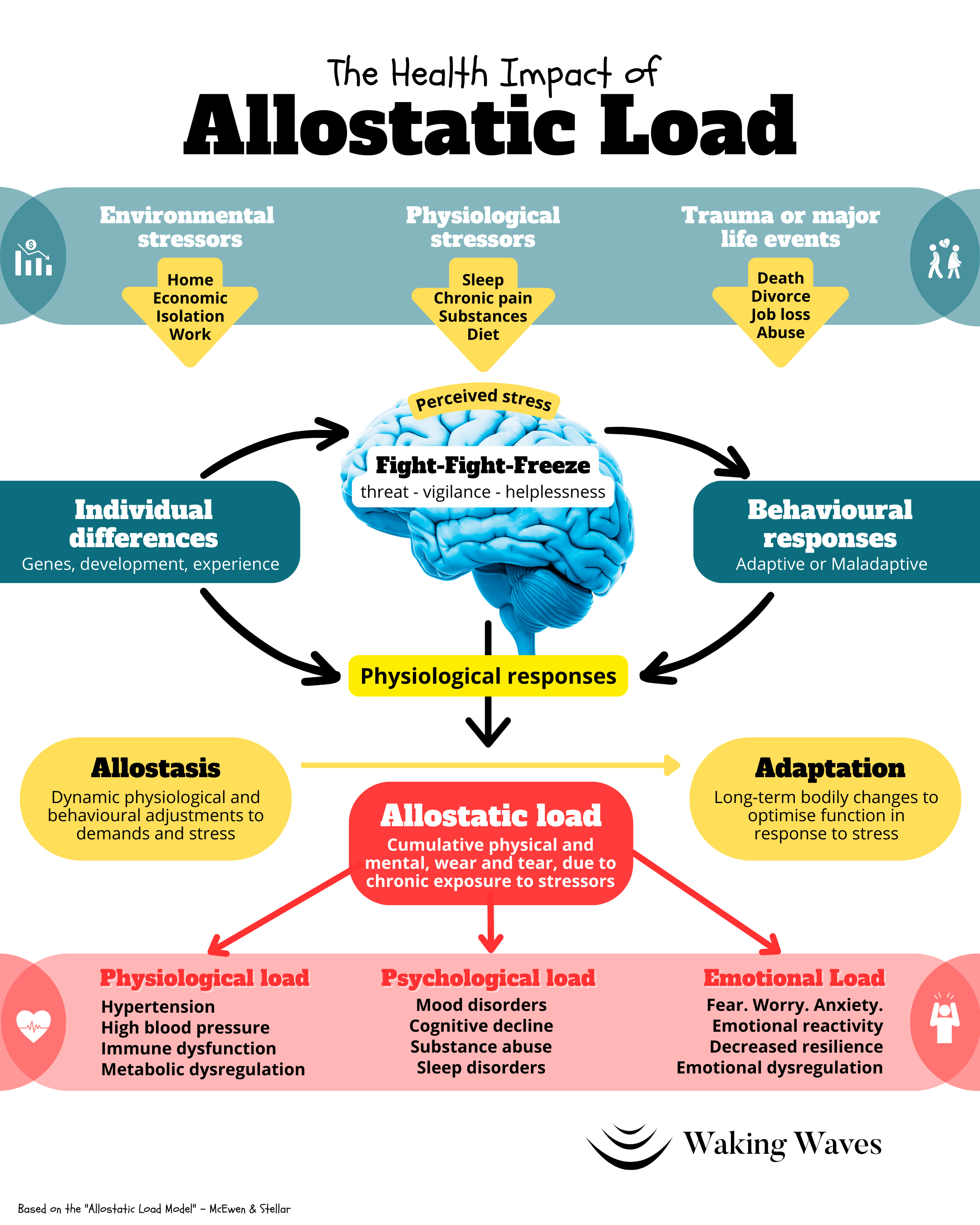Allostatic Overload: Definition, Causes, Effects, and Management Strategies
What is Allostatic Overload?
Allostatic overload is a physiological state that occurs when our body’s stress response system is chronically activated, leading to an accumulation of stress hormones, such as cortisol, adrenaline, and insulin. This overload disrupts the delicate balance of our body’s homeostasis, ultimately compromising our overall health and well-being. The term “allostatic” refers to the body’s ability to adapt and maintain stability in the face of change or stress. When this adaptation mechanism is pushed beyond its limits, it can lead to a state of allostatic overload.
To understand allostatic overload better, consider a scenario where you’re constantly running on a treadmill without any opportunity to rest. Your body remains in a state of heightened arousal, with your heart racing, muscles tense, and senses on high alert. This is similar to what happens when we experience chronic stress, where the body’s “fight or flight” response is triggered, releasing stress hormones to help cope with challenges. However, if this response is prolonged, it can lead to a state of allostatic overload.
For example, consider Sarah, a working mother juggling her job, family responsibilities, and social obligations. Her chronic fatigue, weight gain, and mood swings illustrate the impact of allostatic overload with elevated cortisol levels disrupting her sleep patterns, metabolism, and hormone balance.
Allostatic overload can manifest as:
- Chronic stress: Ongoing exposure to stressors, such as a demanding job, financial worries, or relationship issues.
- Sleep deprivation: Prolonged lack of sleep can disrupt the body’s natural stress response.
- Poor diet: A diet high in processed foods and sugar can contribute to allostatic overload.
- Lack of physical activity: Insufficient exercise can increase inflammation and allostatic overload.
The consequences of allostatic overload can include:
- Weight gain and obesity: Disrupted metabolism can lead to weight issues.
- Mood disorders: Elevated cortisol levels can contribute to anxiety and depression.
- Cardiovascular disease: Chronic inflammation can increase heart disease risk.
- Cognitive impairment: It can affect memory, concentration, and cognitive function.
In conclusion, understanding allostatic overload is key to taking proactive steps to mitigate its effects. Utilizing tools available in GoblinX, such as mindfulness and stress management resources, can offer valuable support. Explore more about anxiety and ADHD management at the GoblinX Website.

This can occur due to exposure to chronic stress, trauma, or anxiety, and can have a lasting impact on both physical and mental health.
Devastating Consequences of Allostatic Overload on Health
Allostatic overload refers to the cumulative wear and tear on our bodies caused by prolonged exposure to stress. Imagine your body’s stress response system as a thermostat; when it remains “on” for too long, equilibrium is disrupted and health deteriorates.
Chronic exposure to stress can weaken our immune systems, disrupt digestion, increase blood pressure, and negatively affect mental health, leading to depression and PTSD. Therefore, understanding allostatic overload is crucial.
Fortunately, there are effective strategies to manage and mitigate allostatic overload:
- Mindfulness and relaxation techniques: Regular mindfulness practices can help calm the nervous system.
- Exercise and physical activity: Moderate exercise shows improvement in mood and stress levels.
- Social support and connection: Building supportive relationships develops resilience against stress.
- Prioritizing sleep and self-care: A regular sleep schedule and self-care activities help recovery.
By embracing these strategies, including using tools from GoblinX, individuals can confront the impacts of allostatic overload, paving the way for better health and well-being.